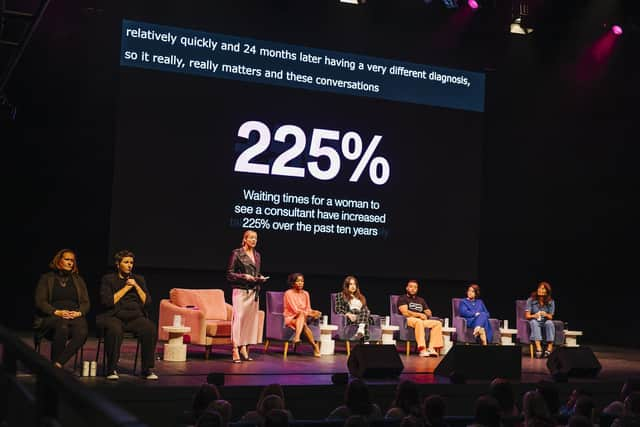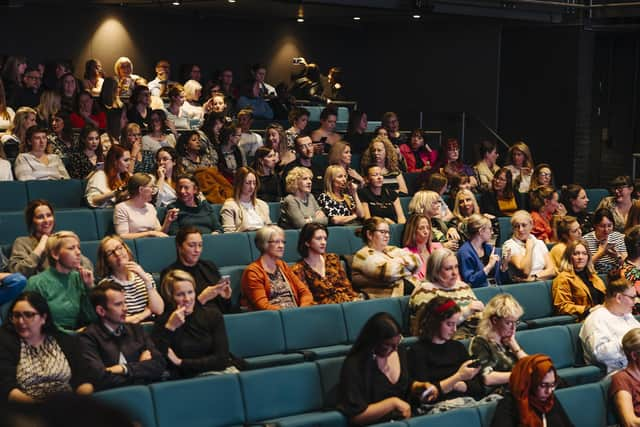Leeds International Festival of Ideas 2023: Davina McCall joins women's health activists to kickstart festival
and live on Freeview channel 276
The Leeds International Festival of Ideas 2023 hosted its first event of the year at Leeds Playhouse on Wednesday, September 28.
The panel featured broadcaster Davina McCall MBE and other leading women’s health activists to discuss ‘When Will Women’s Health Be Taken Seriously?’
Advertisement
Hide AdAdvertisement
Hide AdDavina McCall, who has fronted Channel 4 documentaries and released an award-winning book on menopause, said: “We can’t go online sometimes and talk about this stuff in an open way, and have a discussion where you can ask questions without fear.


“And I want to learn, we all want to learn. Events like these are a safe space, where we can come and listen, and form an opinion.”
The panelists discussed everything from misdiagnosis to increased waiting times. Pregnancy and gynaecology specialist Dr Christine Ekechi told the audience at Leeds Playhouse that women’s health is often seen as an afterthought.
She said: “Unfortunately, what we are seeing is the extension of the waiting lists and particularly around the gynaecology waiting lists, maternity is protected for obvious reasons. It is very emotive, nobody wants to hear about a mother or a baby dying – but somehow it is almost as if a woman's value is only limited to the time when she or they are pregnant.
Advertisement
Hide AdAdvertisement
Hide Ad“The truth is that there are huge pressures within the NHS but when difficult decisions need to be made about where we put our resources, women's health always seems to come last.”


The panel also discussed the language and euphemisms used around menstruation and menopause.
Founder of Bloody Good Period, a charity which has given away more than 270,000 period items to asylum seekers and refugees, Gabby Jahanshahi-Edlin announced that it was a struggle to have her charity recognised due to the use of the words ‘bloody’ and ‘period’ together.
British cancer activist and founder of Girls vs Cancer Lauren Mahon talked about the importance of teaching young children about their own bodies. She said that she believes that “our health is all of our responsibilities.”
Advertisement
Hide AdAdvertisement
Hide AdMcCall opened up about her journey to become an activist, from being uncomfortable talking about menopause and believing she would never work in television again to advocating for women’s health being her purpose in life.
She said: “My purpose used to be a be a good mum but it didn’t use to feed me the same way this has done.”
And the panelists agreed that the landscape is changing.
Kenny Ethan Jones was the first-ever trans male to front a period advertisement, namely the Pink Parcel's IM ON campaign.
Speaking at Leeds Playhouse, he said: “If you had asked me to do that campaign two years before, I would have been like ‘no’ because I hadn't done the work for myself to really heal.
Advertisement
Hide AdAdvertisement
Hide Ad“A lot of growing up and being trans is told that you're weird or it doesn't exist. I kind of, within therapy, realised that language was probably one of the main reasons why I felt bad about having a period. I didn't necessarily feel discomfort about something that naturally happened to my body, it was the way that the world spoke about periods.”
